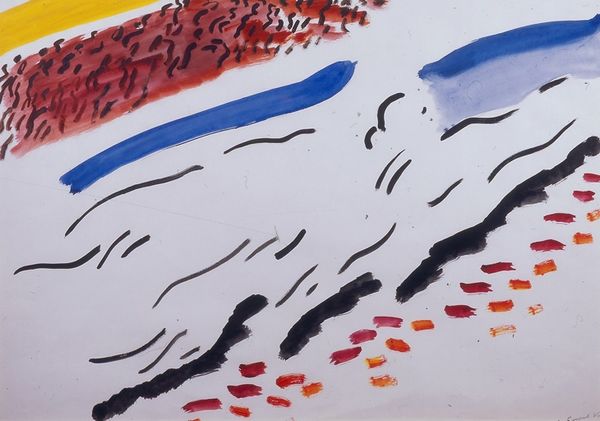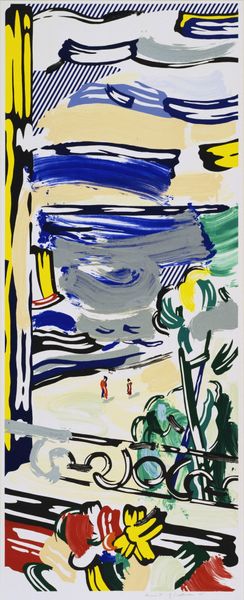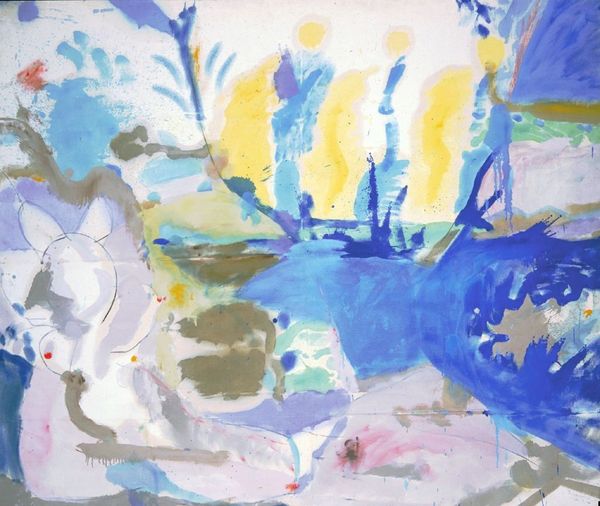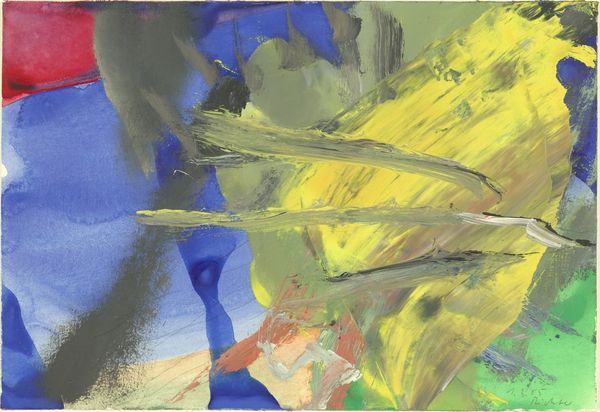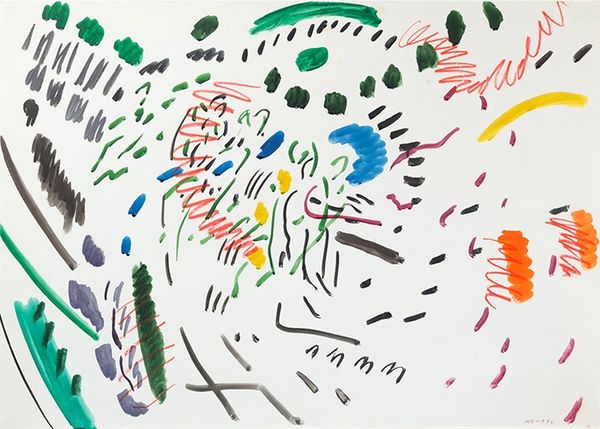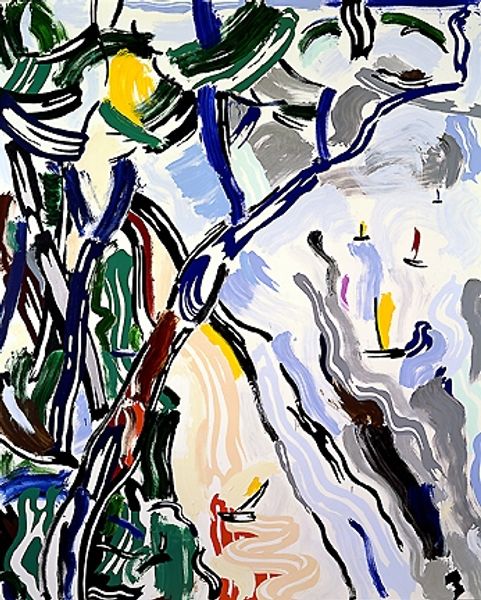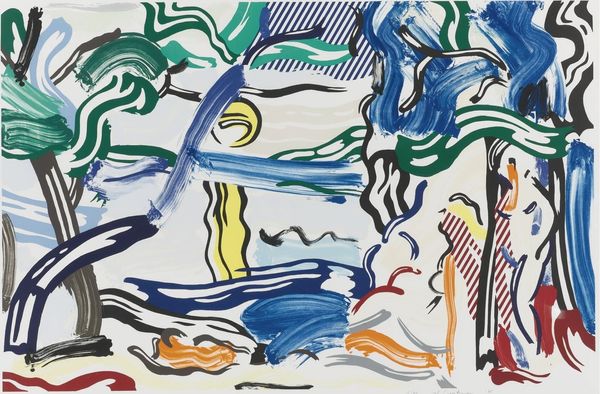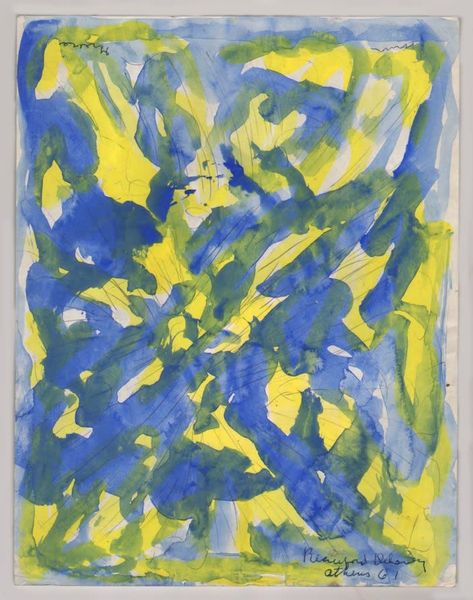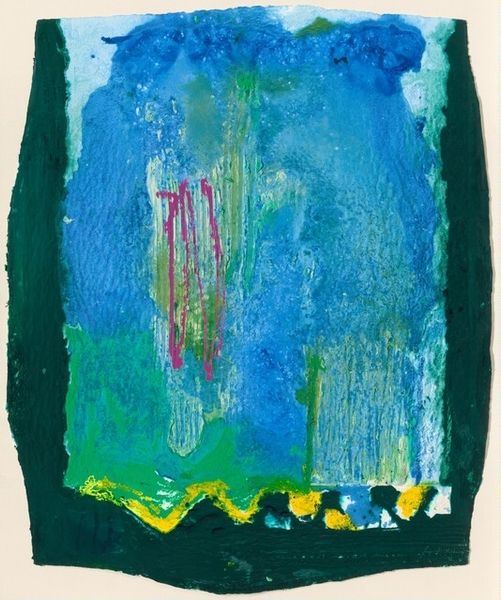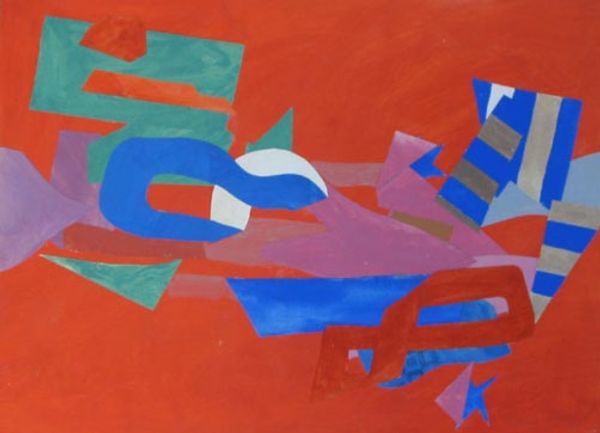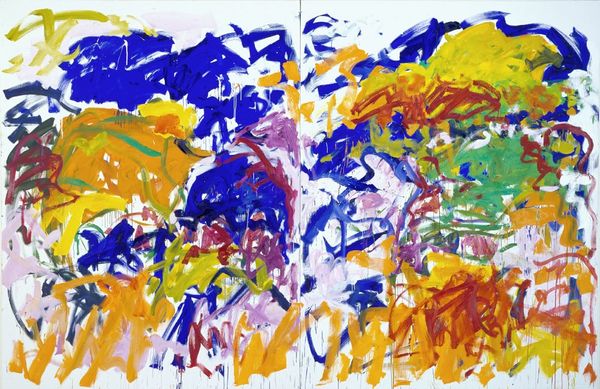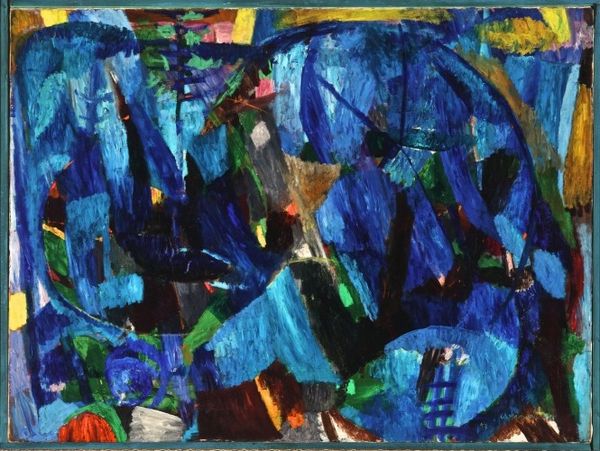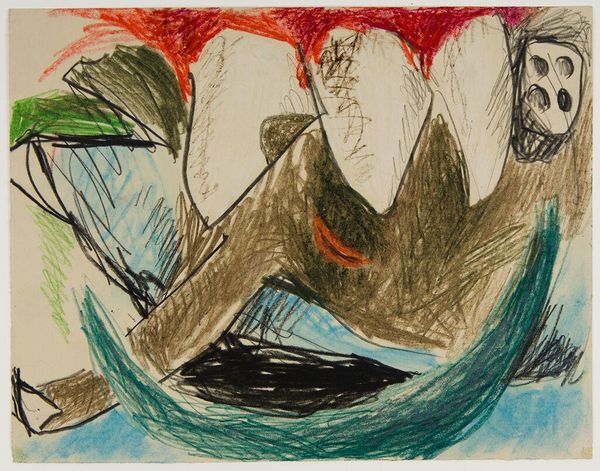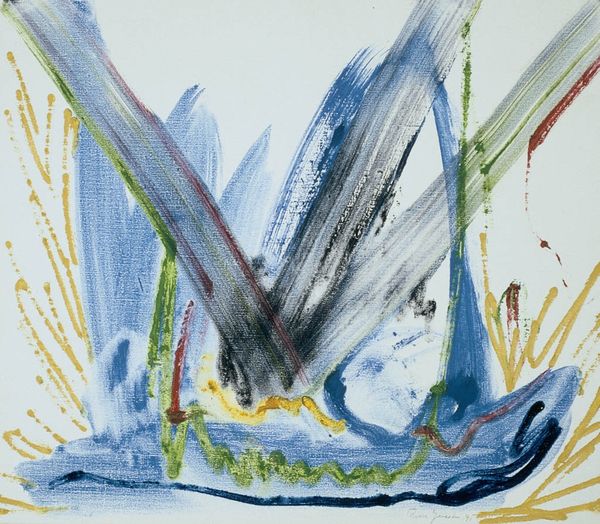
Copyright: Olivier Debre,Fair Use
Editor: Here we have Olivier Debre's "Ossiach," painted in 1996 using acrylic on canvas. The bold colours and brushstrokes are immediately striking. It almost feels like looking at an abstract landscape, or perhaps a study in pure colour and form. What catches your eye about this piece? Curator: Immediately, the materiality of the acrylic paint is apparent. The way Debre uses it – layering and creating texture – becomes a central subject in itself. Note how the almost industrial application contrasts with the suggestion of natural forms. This tension, between the manufactured medium and the illusion of landscape, opens a dialogue about the human intervention inherent in even the most pastoral scenes. How do you think Debre's technique of layering plays into that tension? Editor: I see how the layers add depth but also emphasise the artificiality of the painting. The bright colors remind me a bit of pop art, in terms of production and consumerism, though I’m not sure that’s intentional here. Curator: Interesting observation. Thinking about materials and context, it makes one wonder, too, about accessibility. Acrylic paints became much more widely available during the 20th century. Could Debre be democratizing the 'landscape', making it available and re-creatable by anyone through readily available industrial materials? Do you see a connection to mass production in these vivid, uniform colours? Editor: It's like he is making something unique with everyday materials, which, thinking about it, creates a sense of irony given that the canvas has an edition number on the lower left. I did not notice the edition at first! That edition disrupts this supposed sense of uniqueness! Curator: Precisely! We often separate 'high' art from everyday 'craft', but Debre seems to challenge that boundary through process and materials. What did you take away from our exploration? Editor: Looking at "Ossiach" through this material lens has totally changed my perception; the layers and accessible materials create an engaging irony about production and consumerism. Curator: Agreed, and hopefully a reminder that even in abstraction, the 'how' and 'why' of making are as vital as the 'what'.
Comments
No comments
Be the first to comment and join the conversation on the ultimate creative platform.
